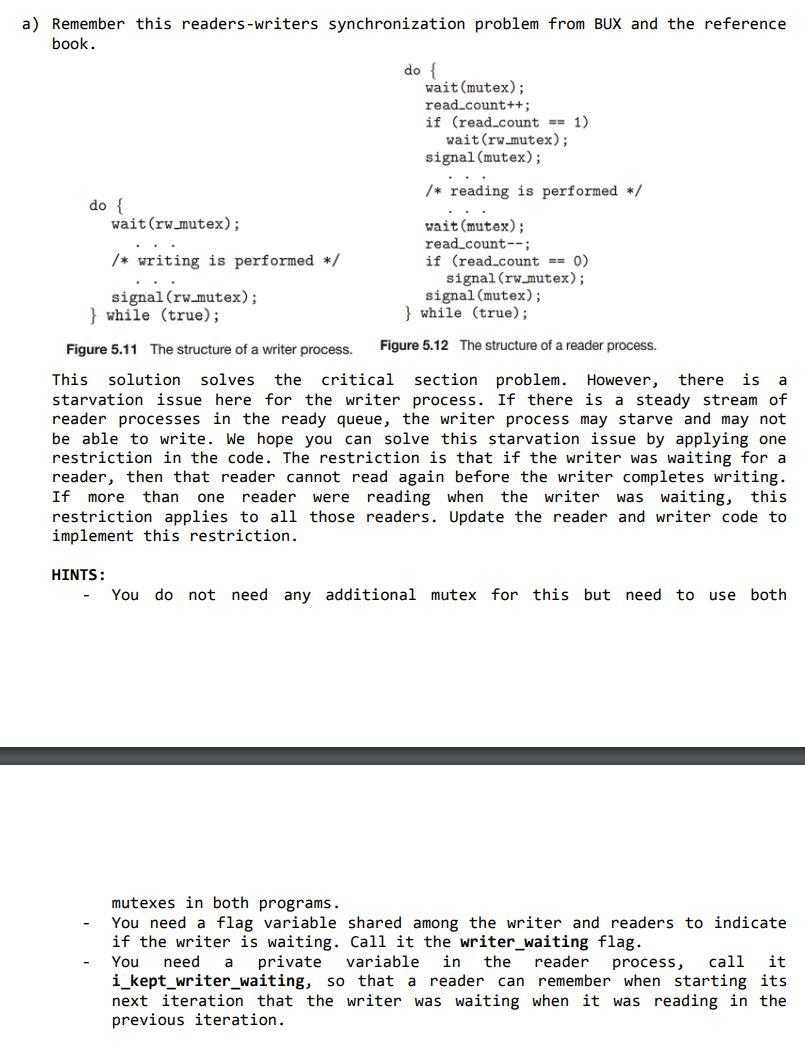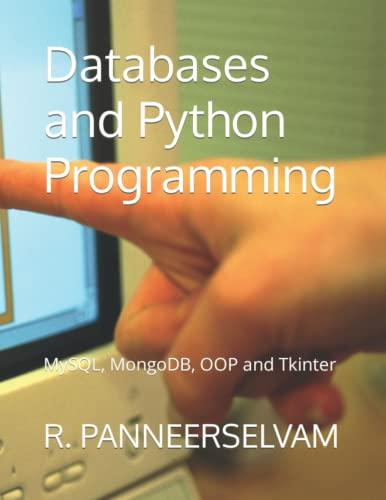Answered step by step
Verified Expert Solution
Question
1 Approved Answer
a) Remember this readers-writers synchronization problem from BUX and the reference book. do { wait (mutex); read.count++; if (read_count == 1) wait (rw_mutex); signal (mutex);

Step by Step Solution
There are 3 Steps involved in it
Step: 1

Get Instant Access to Expert-Tailored Solutions
See step-by-step solutions with expert insights and AI powered tools for academic success
Step: 2

Step: 3

Ace Your Homework with AI
Get the answers you need in no time with our AI-driven, step-by-step assistance
Get Started


